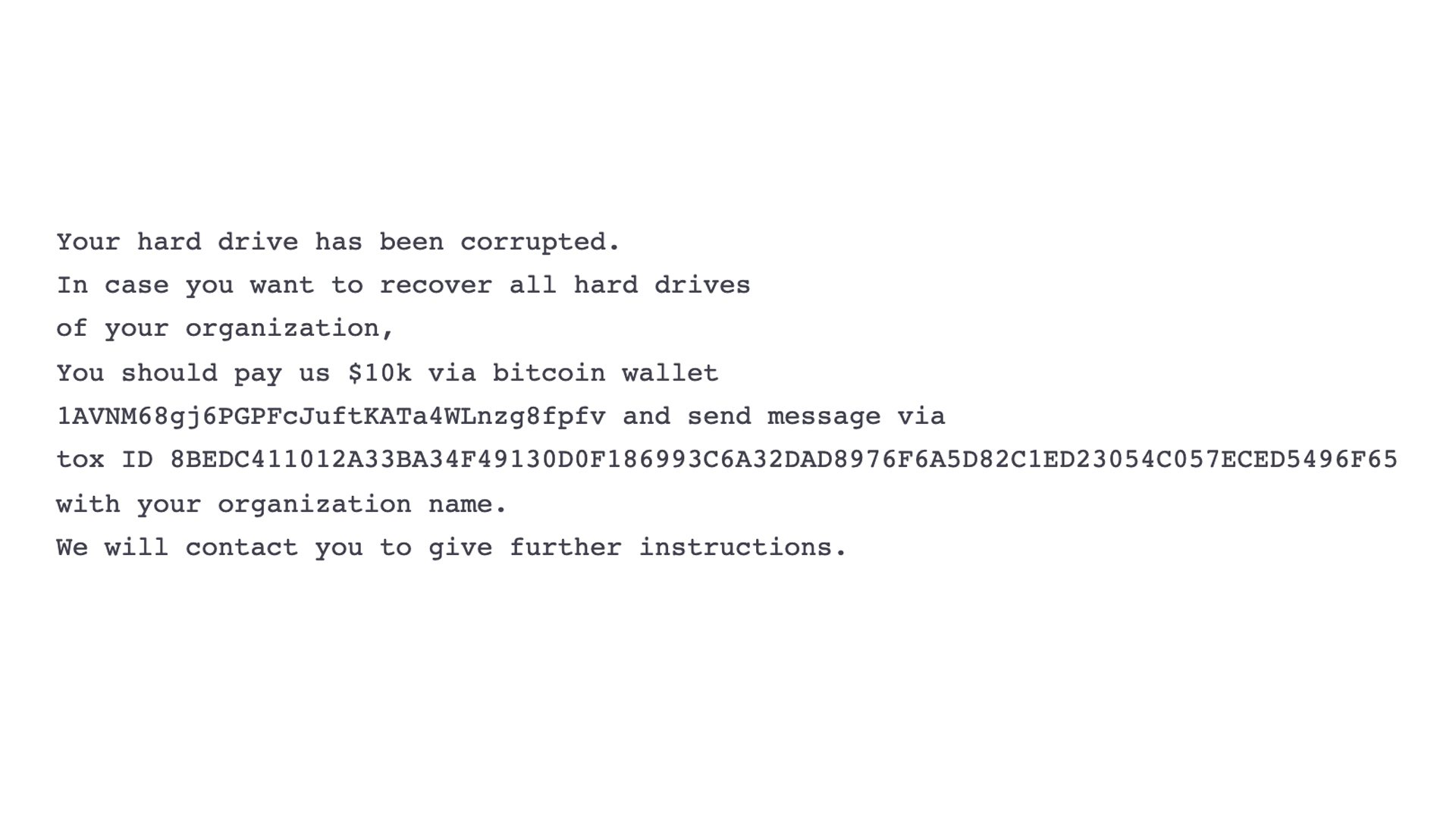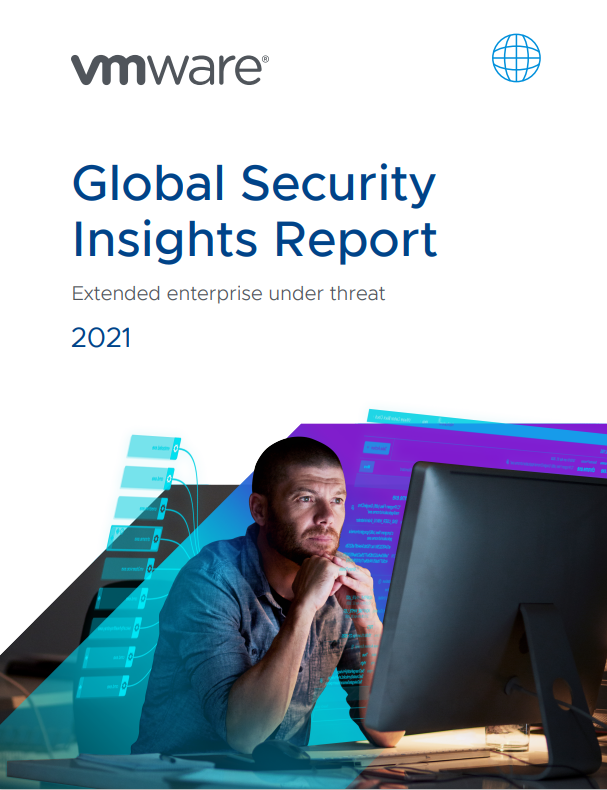Microsoft warns full scope of Ukraine cyber attacks ‘not fully realised’
The company's investigation into the attacks targeting Ukraine revealed atypical characteristics of the "destructive" campaign that disguises itself as ransomware


Microsoft has investigated the cyber attacks in Ukraine and revealed evidence of a targeted malware campaign that disguises itself as ransomware, but offers no recourse for victims to recover their data.
The so-called 'fake ransomware' was examined by Microsoft's Threat Intelligence Center (MSTIC), which concluded that the "destructive malware" was designed to render targeted machines inoperable rather than to attract a ransom payment.
Microsoft's analysis of the malware revealed other inconsistencies between it and traditional ransomware. While a ransom sum and cryptocurrency wallet address are provided, the way in which the malware is designed means victims wouldn't be able to recover their data even if they did pay to $10,000 ransom demanded in the note.

MSTIC said the malware works by overwriting the Master Boot Record (MBR) on victim systems, leaving a ransom note (above). The MBR is the part of a hard drive that tells the computer how to load its operating system.
Overwriting the MBR is not common with financially motivated ransomware operators since a destructed MBR means files are destroyed with no mechanism for recovery. If this were the case with typical ransomware, there would be no motivation to pay.
Other differences between the malware hitting Ukraine and ransomware include a uniform ransom demand - usually these are tailored to each victim, a lack of customer ID number in the note, and the communication method being over the Tox encrypted messaging protocol - usually victims are directed to a dark web site owned by the ransomware operator where they can seek support.
The investigation into the attack is ongoing but MSTIC suggested the current malware infection may continue to spread beyond the "dozens" of machines that are already affected. Said machines span sectors including government, non-profits, and IT organisations.
Get the ITPro daily newsletter
Sign up today and you will receive a free copy of our Future Focus 2025 report - the leading guidance on AI, cybersecurity and other IT challenges as per 700+ senior executives
MSTIC also said it's currently unsure at what stage in the attackers' operational cycle they're currently or how many other victims there may be across the country, but the scale of the attack most likely isn't fully realised at present.
"Given the scale of the observed intrusions, MSTIC is not able to assess intent of the identified destructive actions but does believe these actions represent an elevated risk to any government agency, non-profit or enterprise located or with systems in Ukraine," said MSTIC in a blog post.
"We strongly encourage all organisations to immediately conduct a thorough investigation and to implement defences using the information provided in this post. MSTIC will update this blog as we have additional information to share."
Geopolitical tensions in the region
RELATED RESOURCE

The revelations shed more light on the issue first reported last week and follow a lengthy period of unproductive talks, held recently in Geneva, between the US and Russia on the topic of Ukraine.
Most recently, Ukraine officials have said they believe Belarus, a close ally of Russia, is behind the wave of cyber attacks on the nation, adding that the malware used bears resemblance to similar strains previously used by Russian intelligence, Reuters reported.
Ukraine and Russia have been locked in a war over territory since 2014 and there are strong fears that Russia, which has amassed troops at the Ukrainian border, may invade Ukraine as a result of the conflict.
Russia is desperately trying to prevent Ukraine from joining European institutions such as Nato, a demand the West rejects. A war between the two nations is not thought to be imminent, but tensions are arguably at the highest they have been in decades.

Connor Jones has been at the forefront of global cyber security news coverage for the past few years, breaking developments on major stories such as LockBit’s ransomware attack on Royal Mail International, and many others. He has also made sporadic appearances on the ITPro Podcast discussing topics from home desk setups all the way to hacking systems using prosthetic limbs. He has a master’s degree in Magazine Journalism from the University of Sheffield, and has previously written for the likes of Red Bull Esports and UNILAD tech during his career that started in 2015.
-
 Bigger salaries, more burnout: Is the CISO role in crisis?
Bigger salaries, more burnout: Is the CISO role in crisis?In-depth CISOs are more stressed than ever before – but why is this and what can be done?
By Kate O'Flaherty Published
-
 Cheap cyber crime kits can be bought on the dark web for less than $25
Cheap cyber crime kits can be bought on the dark web for less than $25News Research from NordVPN shows phishing kits are now widely available on the dark web and via messaging apps like Telegram, and are often selling for less than $25.
By Emma Woollacott Published
-
 ‘Phishing kits are a force multiplier': Cheap cyber crime kits can be bought on the dark web for less than $25 – and experts warn it’s lowering the barrier of entry for amateur hackers
‘Phishing kits are a force multiplier': Cheap cyber crime kits can be bought on the dark web for less than $25 – and experts warn it’s lowering the barrier of entry for amateur hackersNews Research from NordVPN shows phishing kits are now widely available on the dark web and via messaging apps like Telegram, and are often selling for less than $25.
By Emma Woollacott Published
-
 Healthcare systems are rife with exploits — and ransomware gangs have noticed
Healthcare systems are rife with exploits — and ransomware gangs have noticedNews Nearly nine-in-ten healthcare organizations have medical devices that are vulnerable to exploits, and ransomware groups are taking notice.
By Nicole Kobie Published
-
 Alleged LockBit developer extradited to the US
Alleged LockBit developer extradited to the USNews A Russian-Israeli man has been extradited to the US amid accusations of being a key LockBit ransomware developer.
By Emma Woollacott Published
-
 February was the worst month on record for ransomware attacks – and one threat group had a field day
February was the worst month on record for ransomware attacks – and one threat group had a field dayNews February 2025 was the worst month on record for the number of ransomware attacks, according to new research from Bitdefender.
By Emma Woollacott Published
-
 CISA issues warning over Medusa ransomware after 300 victims from critical sectors impacted
CISA issues warning over Medusa ransomware after 300 victims from critical sectors impactedNews The Medusa ransomware as a Service operation compromised twice as many organizations at the start of 2025 compared to 2024
By Solomon Klappholz Published
-
 Warning issued over prolific 'Ghost' ransomware group
Warning issued over prolific 'Ghost' ransomware groupNews The Ghost ransomware group is known to act fast and exploit vulnerabilities in public-facing appliances
By Solomon Klappholz Published
-
 The Zservers takedown is another big win for law enforcement
The Zservers takedown is another big win for law enforcementNews LockBit has been dealt another blow by law enforcement after Dutch police took 127 of its servers offline
By Solomon Klappholz Published
-
 There’s a new ransomware player on the scene: the ‘BlackLock’ group has become one of the most prolific operators in the cyber crime industry – and researchers warn it’s only going to get worse for potential victims
There’s a new ransomware player on the scene: the ‘BlackLock’ group has become one of the most prolific operators in the cyber crime industry – and researchers warn it’s only going to get worse for potential victimsNews Security experts have warned the BlackLock group could become the most active ransomware operator in 2025
By Solomon Klappholz Published